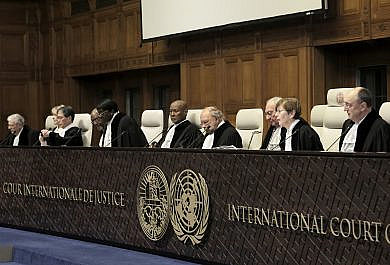Liz Truss resigned on Thursday after just 44 days in office, making her Britain’s shortest-serving Prime Minister ever and creating an opening for a Boris Johnson comeback.
Summary
Liz Truss resigned on Thursday after just 44 days in office, making her Great Britain’s shortest-serving Prime Minister ever.
- Her implosion has created an opening for something once thought impossible: a Boris Johnson comeback.
- While popular with Conservative Party members, Johnson’s own scandal-plagued, turbulent tenure has left him reviled by many of his own party’s lawmakers and some have even threatened to leave the party should he return to power.
- Johnson’s leading rival is Rishi Sunak, the former Treasury chief who lost to Liz Truss in the first Conservative leadership race of the year after warning about the risks of Truss’s tax cut plan.
- Cabinet minister Penny Mordaunt, that race’s third-place finisher, became the first candidate to officially announce a bid on Friday.
- Contenders must receive the support of 100 MPs to make the ballot and MPs will whittle the contenders to two before Conservative Party members will vote on the eventual winner. The new Prime Minister is expected to take office no later than October 28.
- Britain will now have had five prime ministers in the last six years, and three in 2022 alone (so far). Truss’s resignation and replacement by a largely unelected successor does not require holding a new general election, but British opposition parties are demanding one after the chaos of the last few months.
- Support for the Conservative Party has plunged to the “lowest level in British polling history.” Only 14 percent of British adults would vote Conservative if an election was held today while a majority of voters would back the opposition Labour Party.
- Liz Truss is the first casualty, and likely not the last, of soaring inflation and rising interest rates. Investors appear to be “much less forgiving of grandiose taxation and spending plans,” returning the politics of deficits to the forefront for the first time in over a decade.
![]()
- Truss’s defenestration serves as “a warning to all of the political peril that awaits those who fail to address the erosion of living standards,” according to The New York Times. Europe’s high inflation rates are “ushering in a period of social and labor unrest not seen since at least the 1970s.”
- Axios suggested Truss’s downfall could signify the risks of a 2010s-style debt ceiling standoff could be significantly greater in this era of high inflation and high interest rates. “Nobody knows what the real risks embedded in the bond market are right now” – but a debt ceiling fight would likely make those risks all too plain.
- POLITICO wrote the U.K. appears to have a “lemon law” where “If a new prime minister’s first days produce an economic and political disaster, there’s a way to show them out the door of 10 Downing Street before they find out how the coffeemaker works.” Separation of powers prevents something similar from happening in the U.S., which the author argues is a positive feature of the American political system.
![]()
- The Wall Street Journal called Truss a “high-profile casualty” in the new world of higher borrowing costs. Her downfall should serve as a “reality check” for politicians as rising inflation and interest rates mean the days of piling on debt without consequences are over.
- The Telegraph argued one word “could propel Boris Johnson back to No. 10 Downing Street”: “Sorry.” Writer Christopher Hope wrote “the Second Coming of Johnson” must be different from the first lest the same scandals that doomed him in July return with a vengeance.
- National Review predicted British voters would remember Truss’s brief premiership for far longer than it lasted. After leaving the Conservatives’ reputation for economic competence in shambles, the editorial encourages Britain’s next leader to recall “the virtues of incrementalism.”
Author’s Take
It’s been a bewildering year in British politics. It seems unlikely that most Americans expected to see so many news stories from the United Kingdom over the past few months, but when America’s strongest global partner is going through a period of incredible political instability it’s hard not to pay attention – not to mention America’s obsession with the British Royal Family.
It’s worth looking back at how we got here:
January 15 – Then-Prime Minister Boris Johnson is put under investigation and faces calls to resign over the “partygate” scandals.
February 6 – Release of a damning report on “partygate” launches a civil war among U.K. Conservatives that frankly is still ongoing.
May 8 – The Conservative Party performs poorly in the British midterm elections in another blow to Johnson.
June 5 – Queen Elizabeth II celebrates her Platinum Jubilee marking 70 years on the throne.
June 8 – Johnson barely survives a vote of no confidence from his own party, seemingly making him a dead man walking.
July 7 – Boris Johnson resigns as PM and leader of the Conservative Party after more than 1/3 of his ministers quit in protest over the mishandling of sexual misconduct scandal, the last in a rolling series of ethical scandals that slowly eroded Johnson’s support and popularity.
September 5 – Liz Truss wins the Conservative Party leadership election to replace Johnson on a platform of “bold” tax cuts and a new economic policy for Britain.
September 9 – Queen Elizabeth II dies at 96. King Charles III assumes the throne.
September 19 – World leaders converge on London for the historic state funeral of Her Majesty the Queen.
October 17 – Truss’s unfunded tax plan sparks market turmoil, sends interest rates soaring, and forces her to fire her Chancellor and backtrack on her entire agenda.
October 19 – The end is near for Liz Truss after she sacked her Home Secretary and a routine vote collapsed into a shambles.
Weekend Reads
CDC group endorses adding Covid shots to recommended vaccine schedule (NBC News)
Five investigations House Republicans are plotting if they win the majority (The Hill)
Fed Set to Raise Rates by 0.75 Point and Debate Size of Future Hikes (Wall Street Journal)
Snakes on the plains: How Montana race is turning increasingly venomous (Washington Examiner)
Welcome to Los Angeles, where political careers go to die (POLITICO)
Absentee on the Ballot: Fetterman Skipped Committee Meetings For Media Interviews and Vacation (Free Beacon)
© Dominic Moore, 2022






